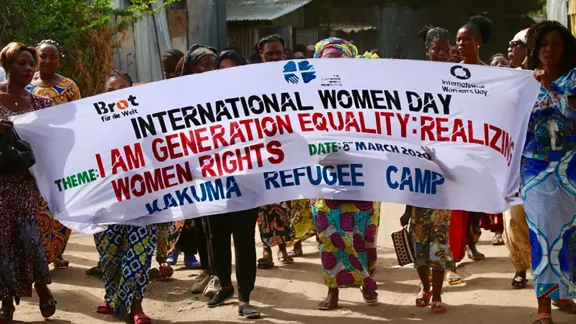
Women in Kenyaâs Kakuma refugee camp, where LWF is the main implementing partner for UNHCR, celebrate International Womenâs Day 2020. Photo: LWF Kenya/Akbar
Ending violence against women and promoting equal rights at heart of celebrations organized by WS programs
(LWI) - Despite difficulties due to the spread of the COVID-19 virus, International Women’s Day activities worldwide this month marked a special celebration of the struggle for equal rights and an end to gender-based violence.
While highlighting the 25th anniversary of the Beijing Declaration, leaders of LWF’s World Service (WS) Country Programs noted that they continue working for greater gender justice through their activities every day of the year.
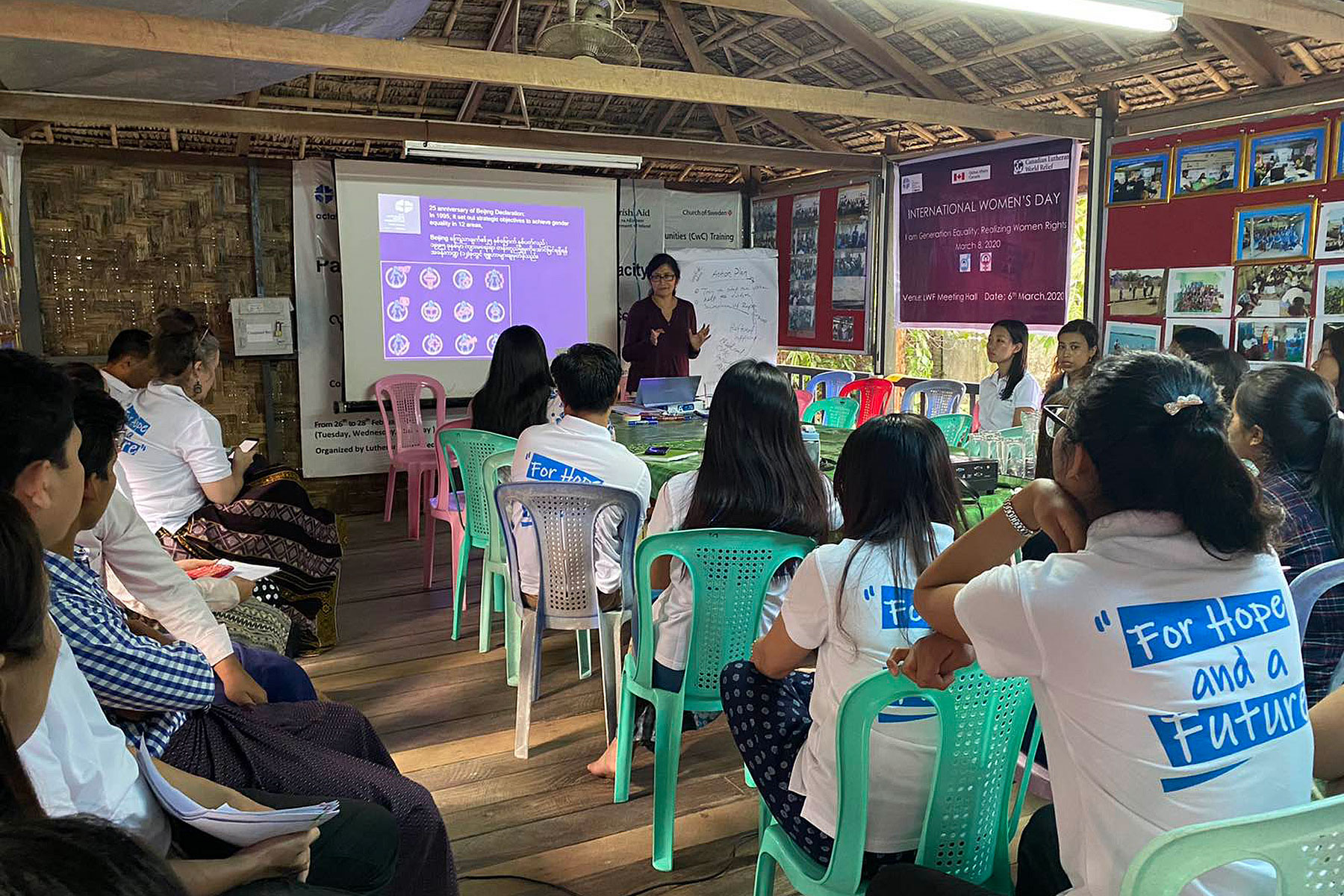
Staff at an LWF World Service office in Myanmar learn about the Beijing Declaration’s 12 critical areas of concern for achieving gender equality. Photo: LWF/K.Chakraborty
Staff at LWF Myanmar’s office in the capital Yangon gathered on 8 March to reiterate their long-standing commitment to eliminating violence against women. They produced a presentation to share with others the history of International Women’s Day and the goals of the Beijing Platform of Action, drawn up at the UN’s 4thWorld Conference on Women in 1995.
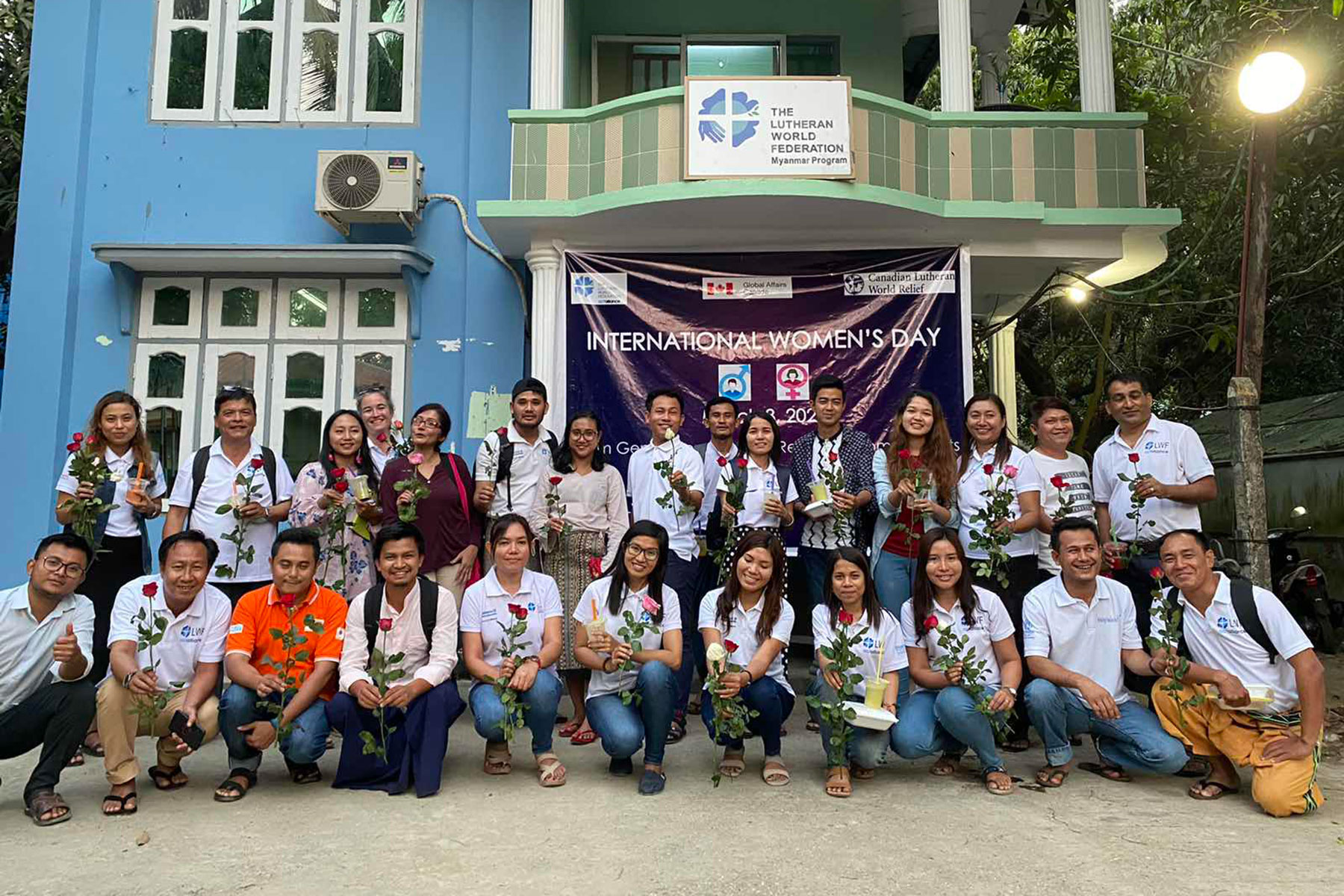
Staff at LWF World Service in Myanmar celebrate International Women Day, reiterating their long-standing commitment to combating gender-based violence in the country. Photo: LWF/K.Chakraborty
Participants at women’s day activities discussed the importance of highlighting gender justice in a country where there are no specific laws to protect women from domestic abuse and where the UN has warned that violence against women is a “silent emergency.” While there are few reported cases of rape and domestic violence in Myanmar, activists say that it is so pervasive that it is often considered “normal” for men to perpetrate such abuse.
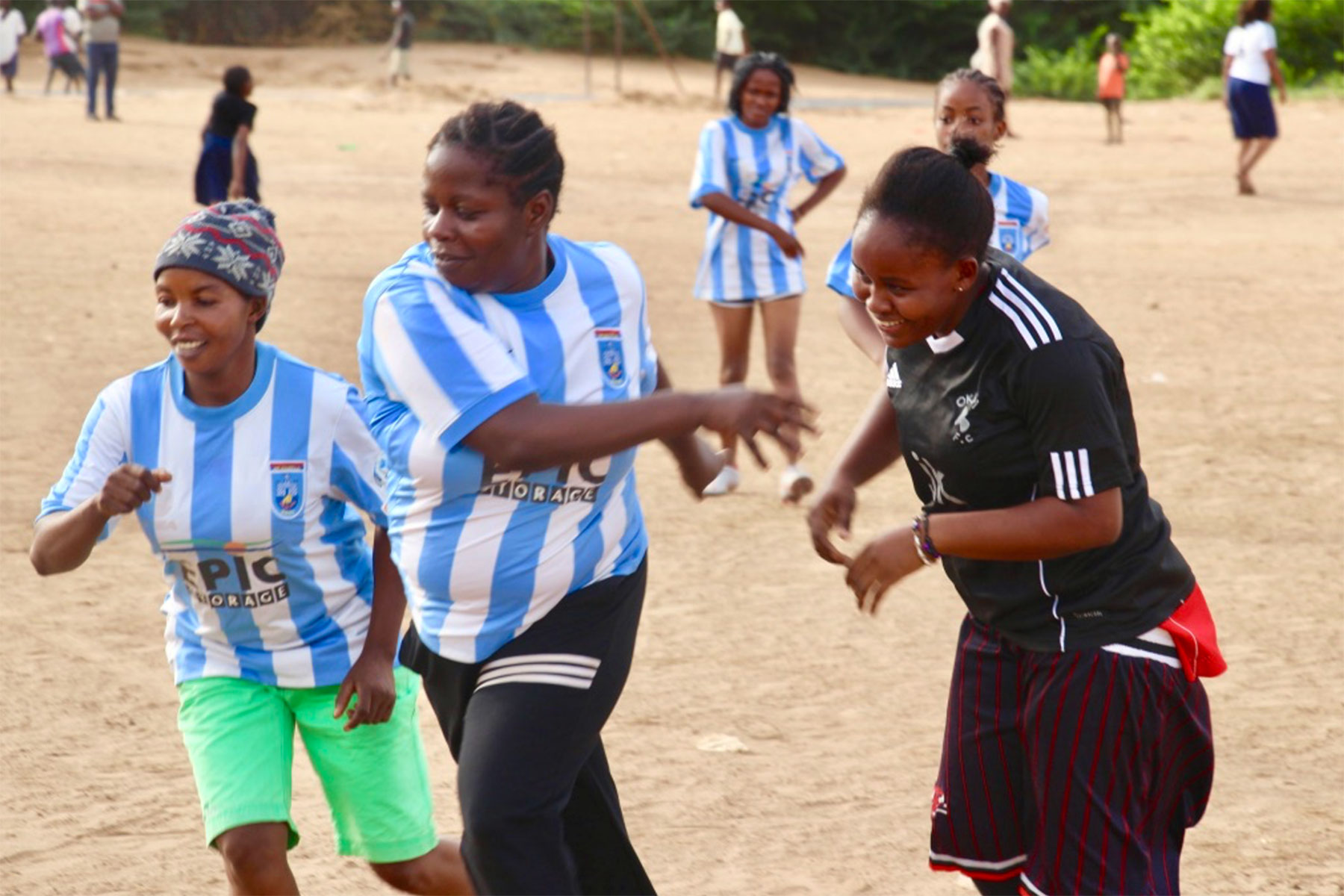
Women in Kenya’s Kakuma refugee camp take part in a football match marking International Women’s Day. Photo: LWF Kenya/Akbar
In Africa, a large number of women took part in 8 March celebrations in Kakuma refugee camp in northwest Kenya. LWF has been the lead implementing partner for UNHCR in the camp since it was established in 1992 and promoting women’s economic empowerment has been an important part of the program from the beginning. Safeguarding and ending the practice of forced marriages for girls is also an integral part of the work there.
Among the tools used to spread the message were a short video and presentation which emphasized the rights of refugee women to rebuild their lives and achieve self-reliance. A football match for female teams was also held in the camp to challenge traditional narratives and stereotypes about women and sport.
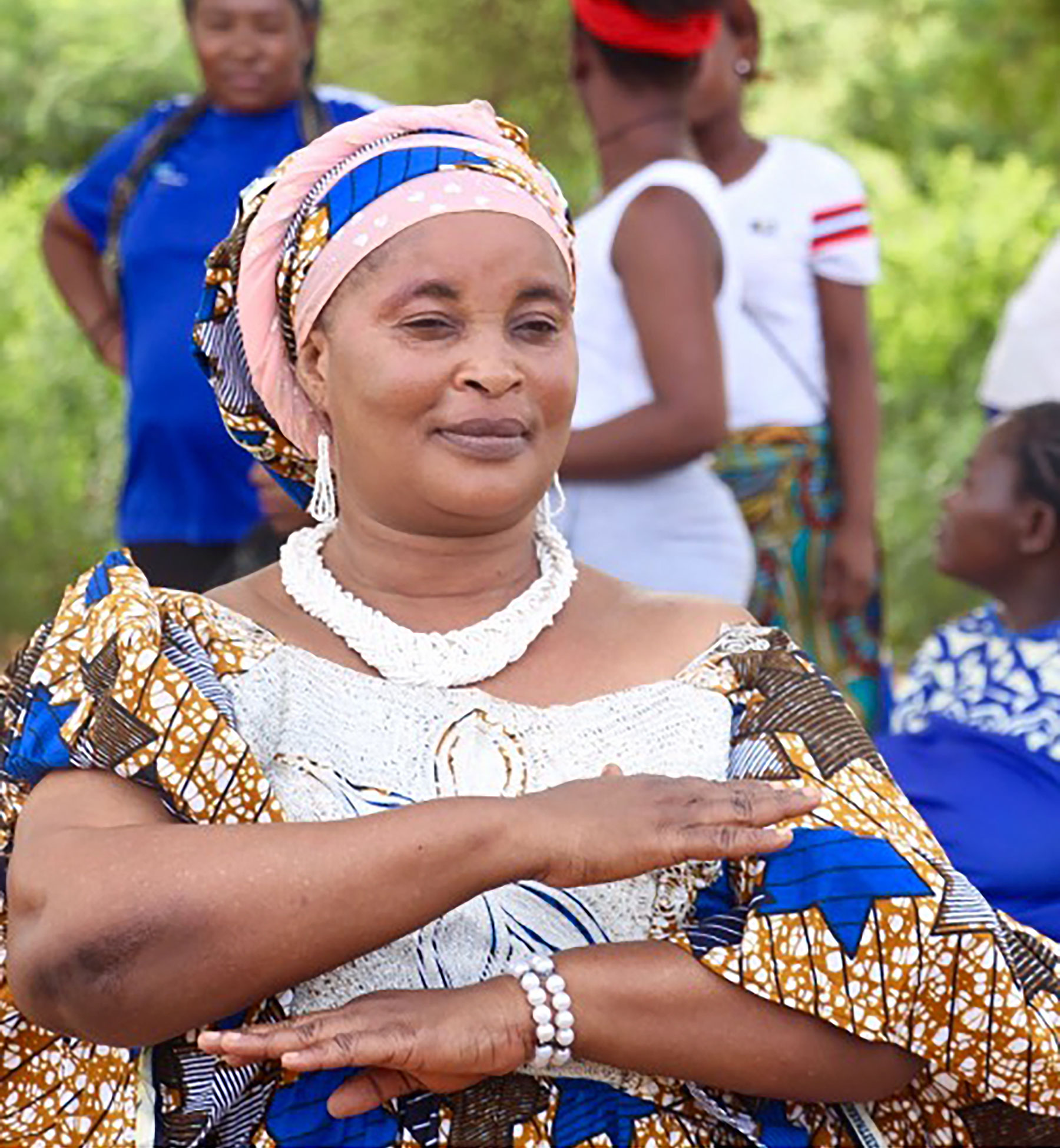
Mami Safi, one of the women in Kenya’s Kakuma refugee camp who have benefited from LWF’s livelihood support program. Photo: LWF Kenya/Akbar
“Acts such as this remind us that despite being refugees we are women and mothers who strive against all odds to provide, to care and support our community,” said Mama Safi, one of Kakuma’s residents who benefited from LWF’s livelihood support program and now runs a successful business in the camp.
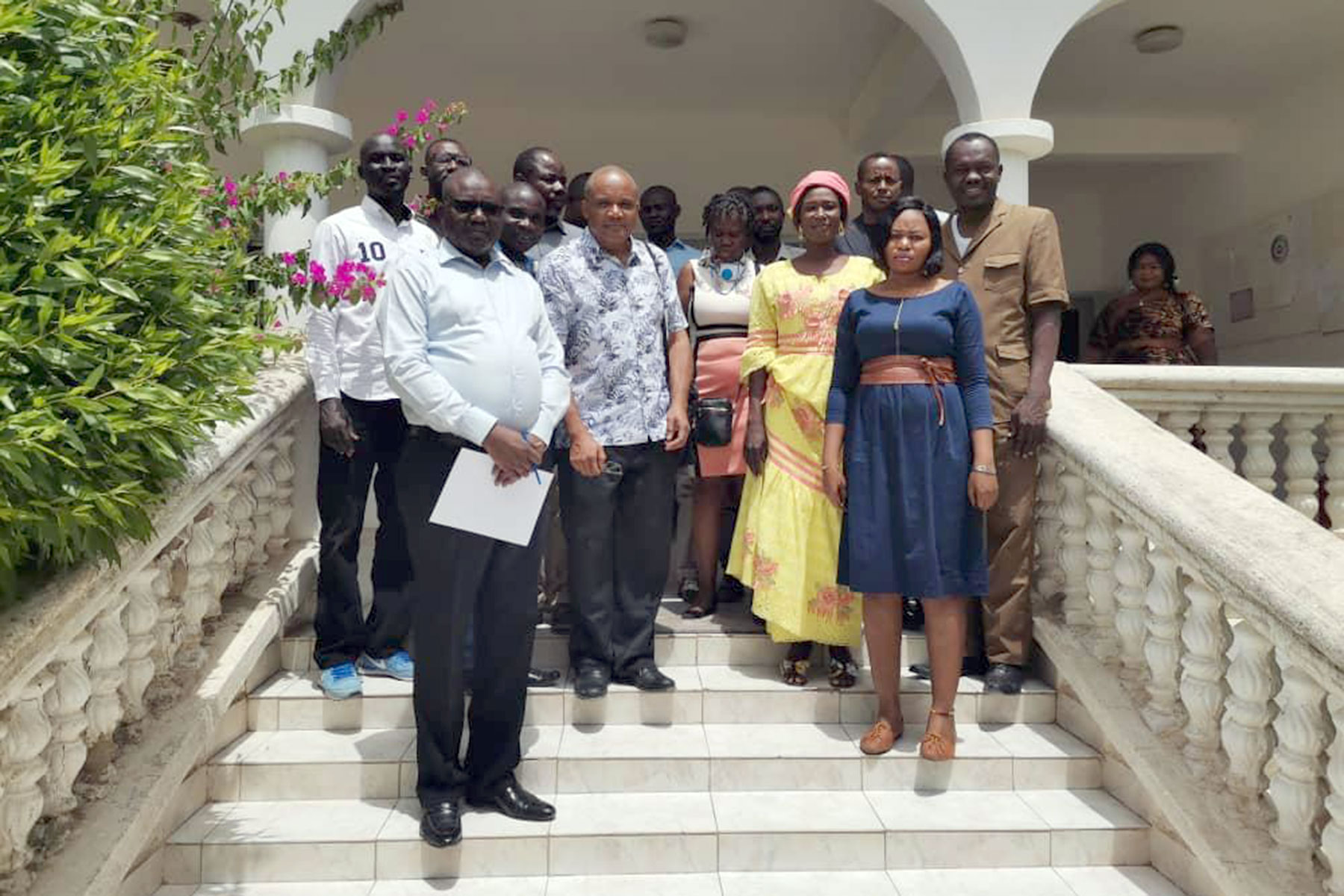
Staff from the LWF World Service and Diakonia offices in N’djamena, gather to mark International Women’s Day with workshops, demonstrations and other events. Photo: FLM Tchad
In Chad, where the LWF assists refugees, returnees and members of host communities in the capital, N’djamena, and five other locations in the south and east of the country, staff discussed women’s rights through the lens of traditional cultural practices.
Gender experts from the UN Office for the Coordination of Humanitarian Affairs (OCHA) and the Association pour la Promotion des Libertés Fondementales au Tchad (APLFT) took part in several days of workshops, demonstrations, discussions and other events around the theme of equality and justice for all.
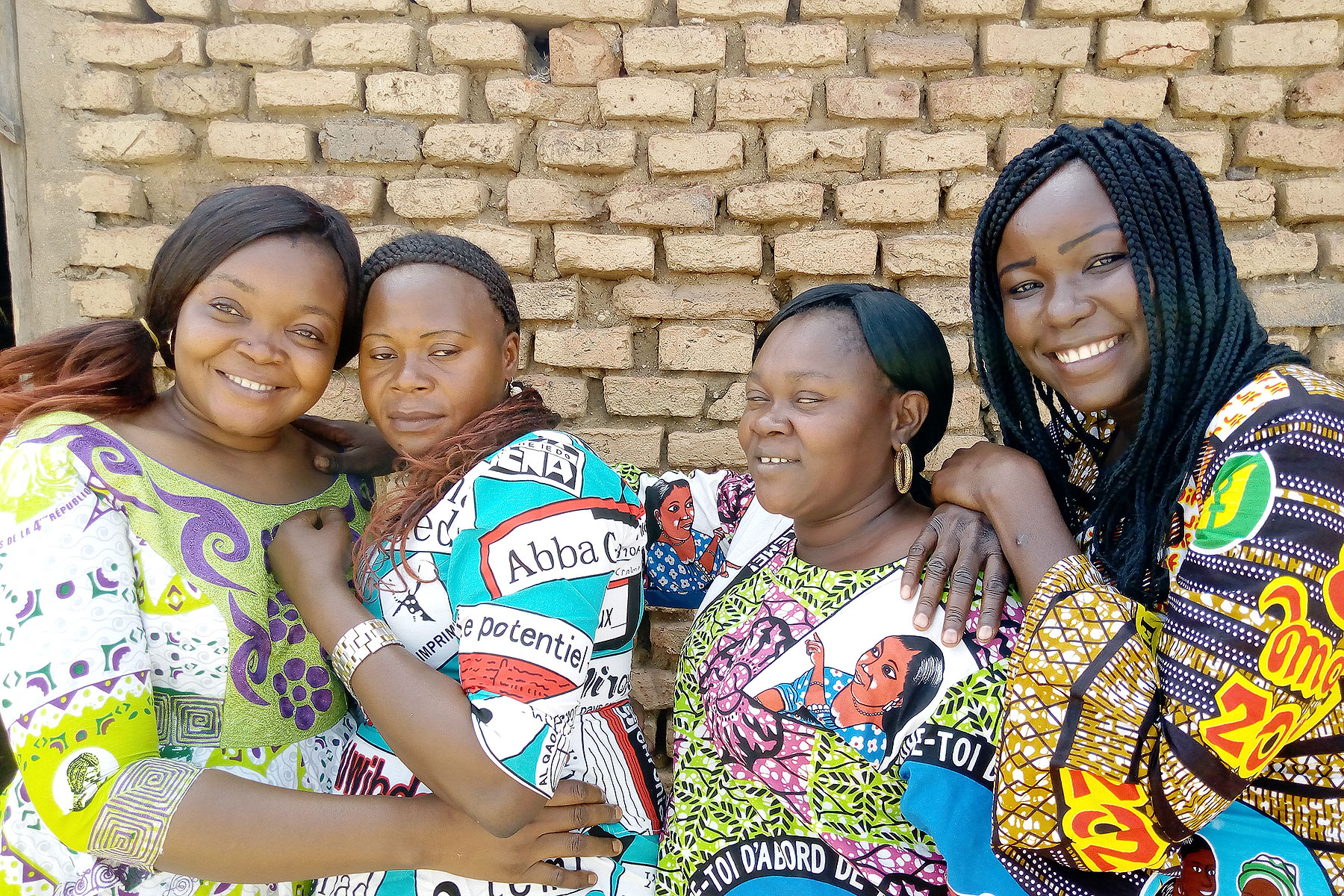
Staff at the LWF World Service office in Hadar Hadjid, Chad gather to mark International Women’s Day. Photo: FLM Tchad
In Haiti, WS staff helped to organize a program of events around the UN theme for Women’s Day ‘I am Generation Equality’. Supported by partners Norwegian Church Aid (NCA) and Diakonie Katastrophenhilfe (DKH), they held workshops and produced audio and video materials celebrating progress that has been made in the country towards empowering women and girls. WS programs with a focus on gender equality in Haiti include women’s literacy classes, skills training in agricultural and animal breeding, promoting environmental protection and participation in public life.
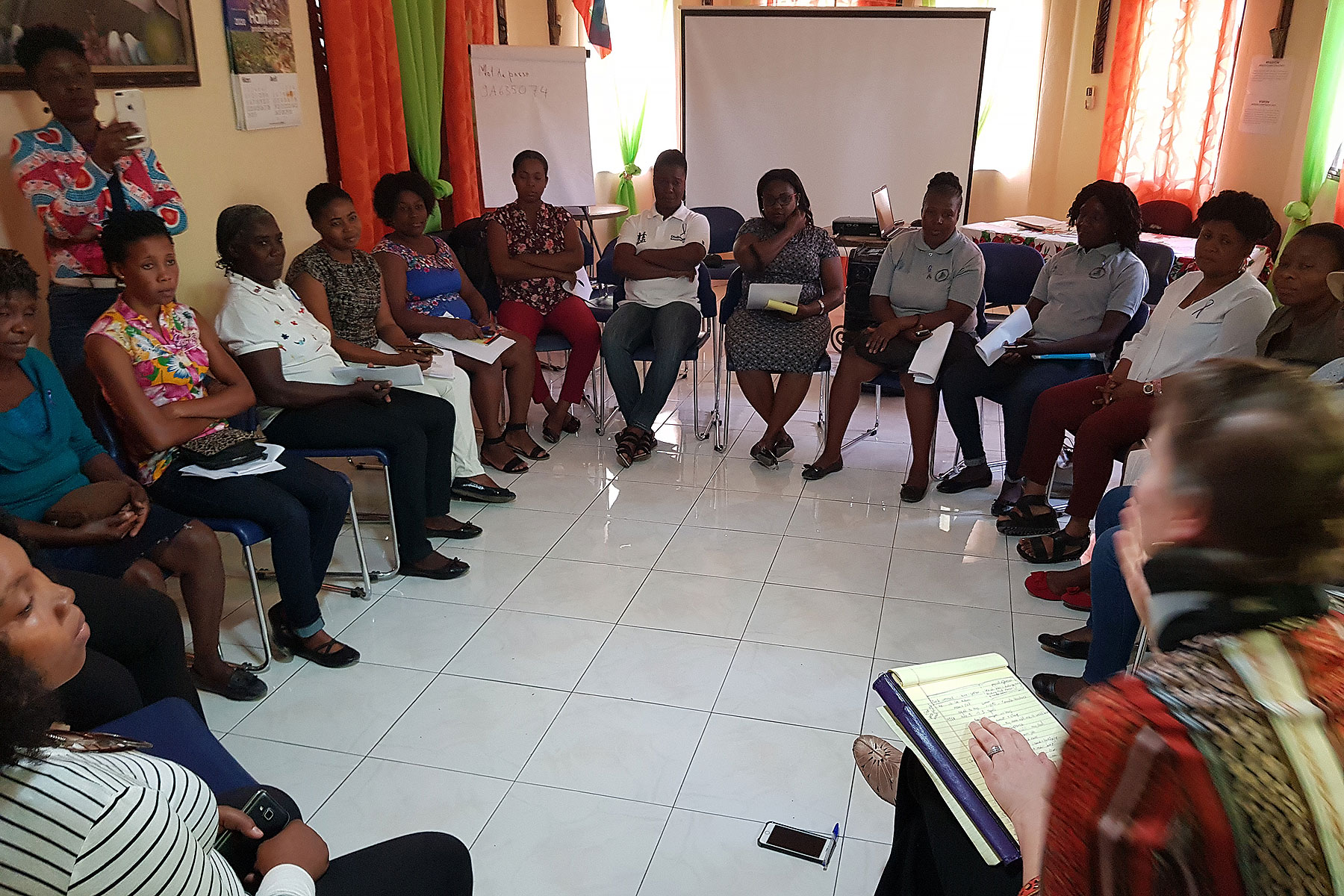
Staff working with LWF World Service in Haiti take part in workshops and other activities marking International Women’s Day. Photo: FLM Haiti
While this work may go on far away from the spotlight for most of the year, participants in these women’s day activities stress the annual observance is a vital reminder of the importance of keeping gender justice at the heart of all development programs. Staff at the Myanmar event were reminded that “with every step, one more woman finds the courage to tell her story and one more family is released from the burden of gender stereotyping, enabling both boys and girls to achieve their full potential.”


